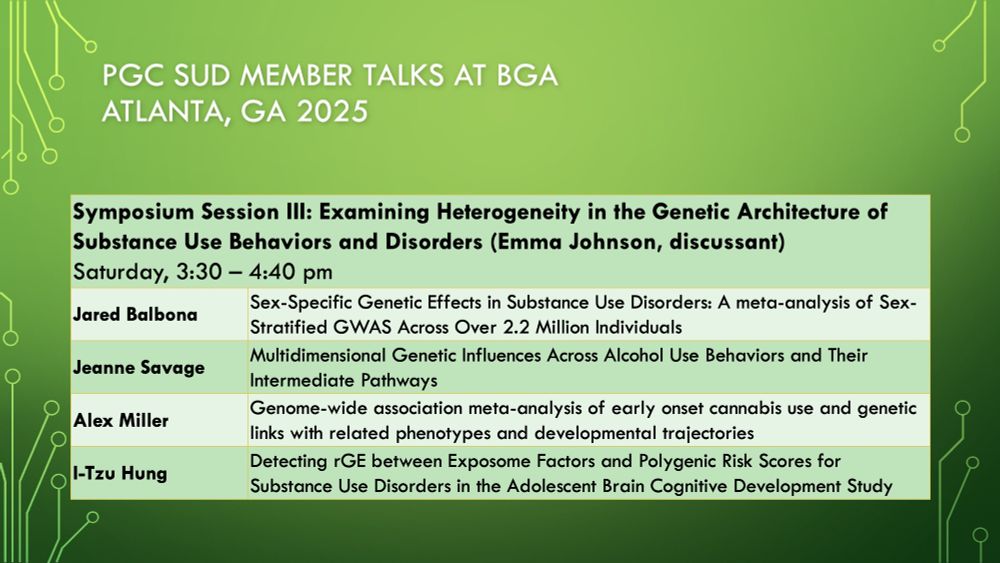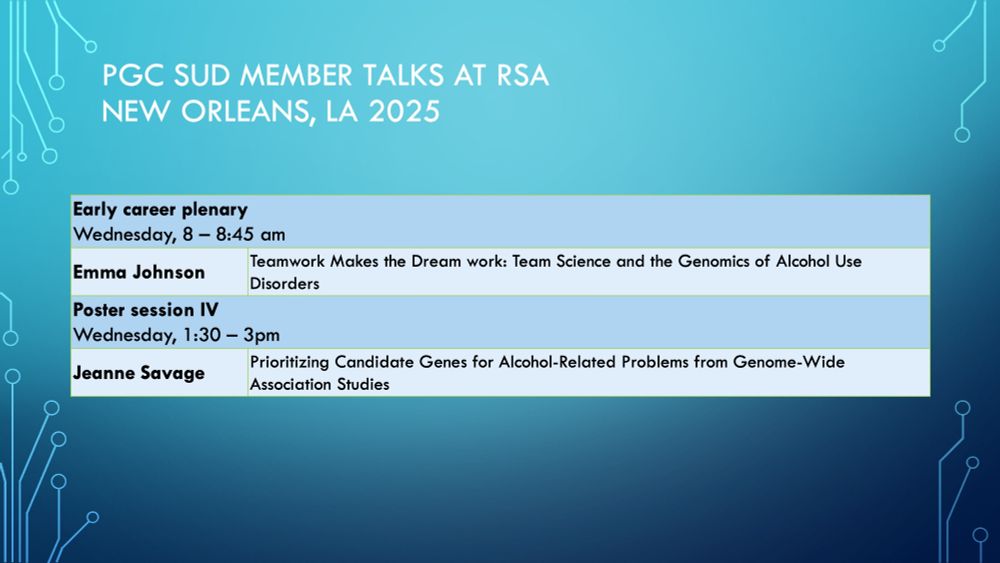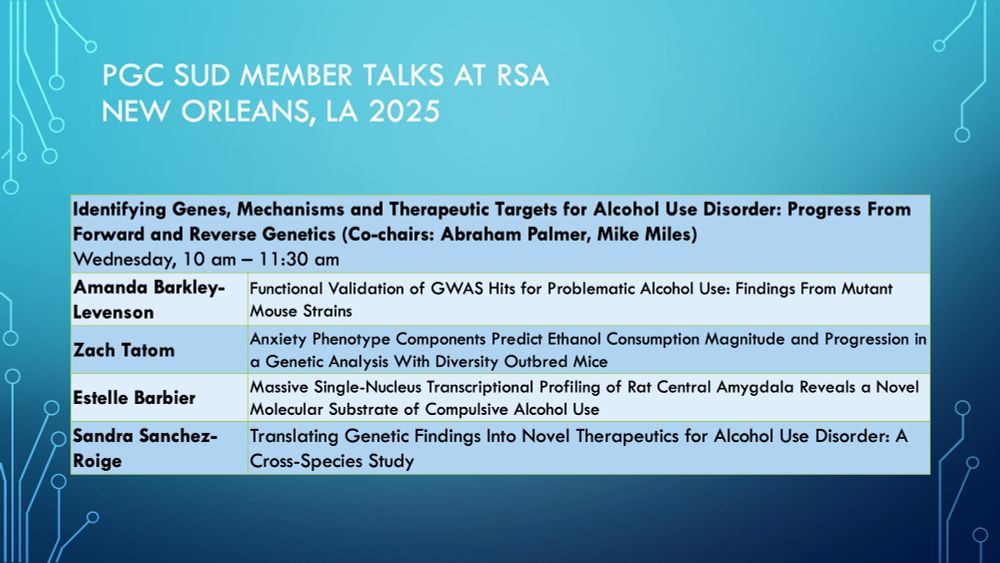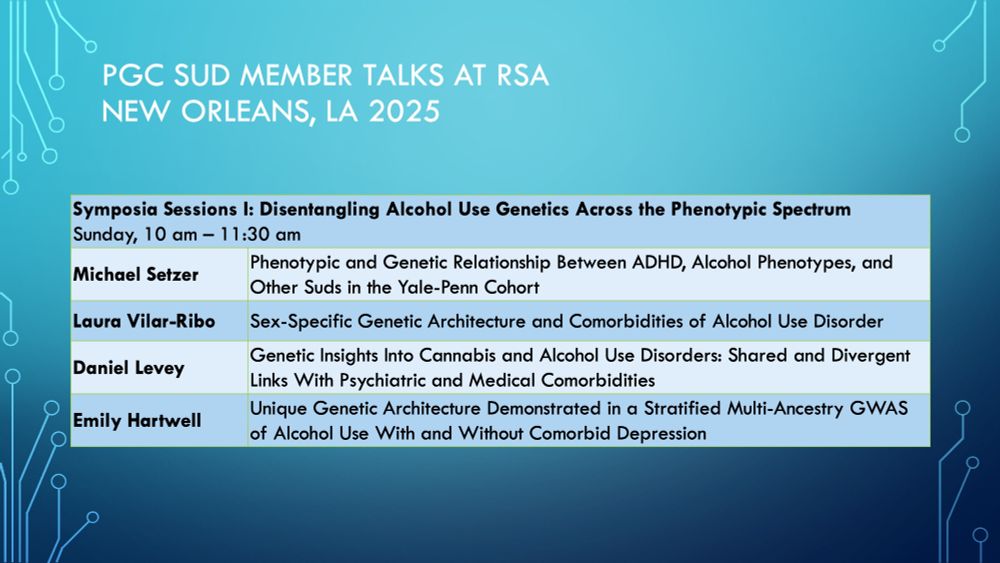
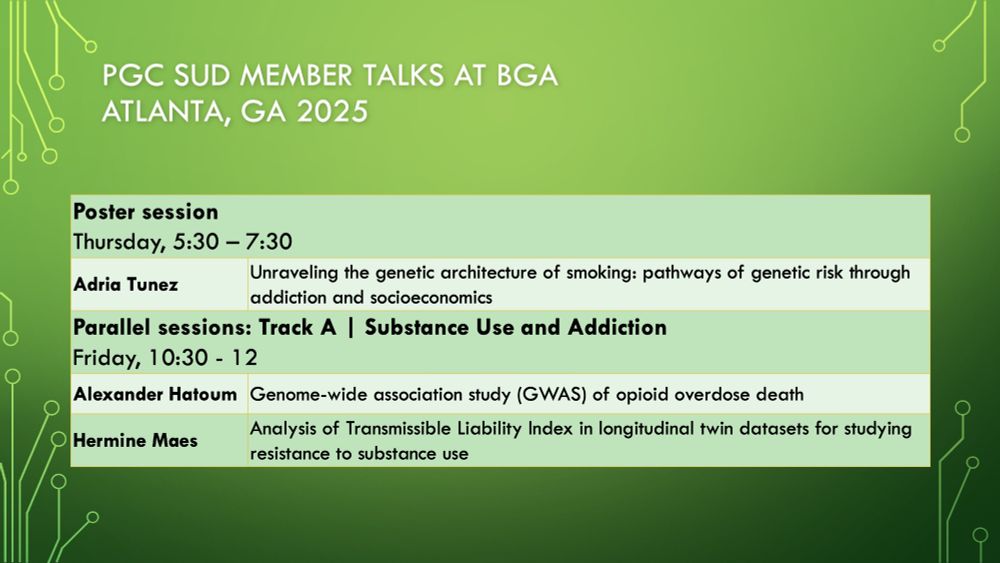
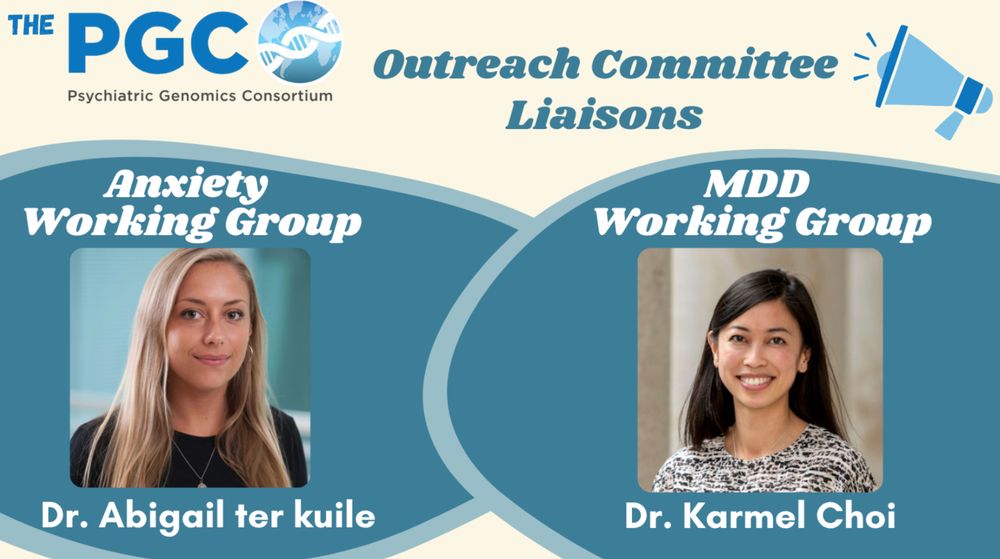
Prevalent comorbidities may contribute to the genetic overlaps observed across conditions.
www.medrxiv.org/content/10.1...
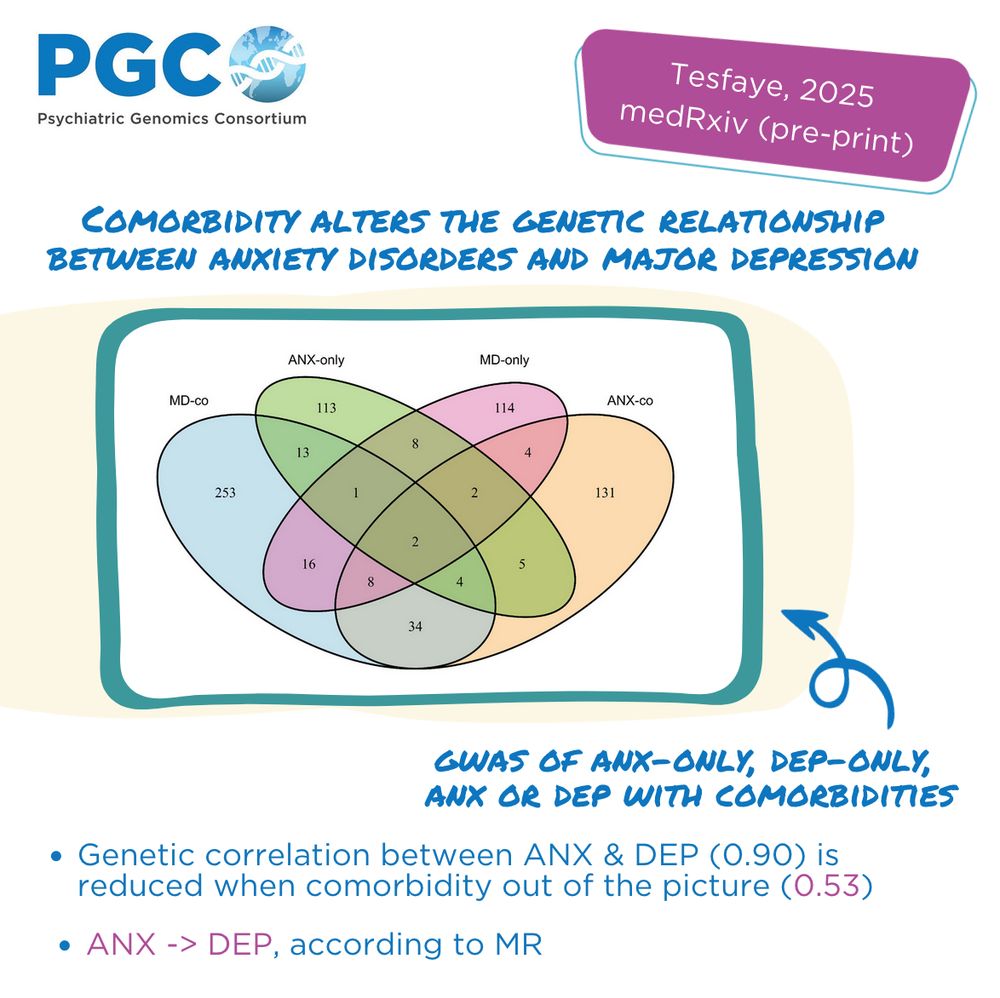
Prevalent comorbidities may contribute to the genetic overlaps observed across conditions.
www.medrxiv.org/content/10.1...
Check out this project and reach out to PI @cathrynlewis.bsky.social to learn more or collaborate!
www.kcl.ac.uk/research/amb...
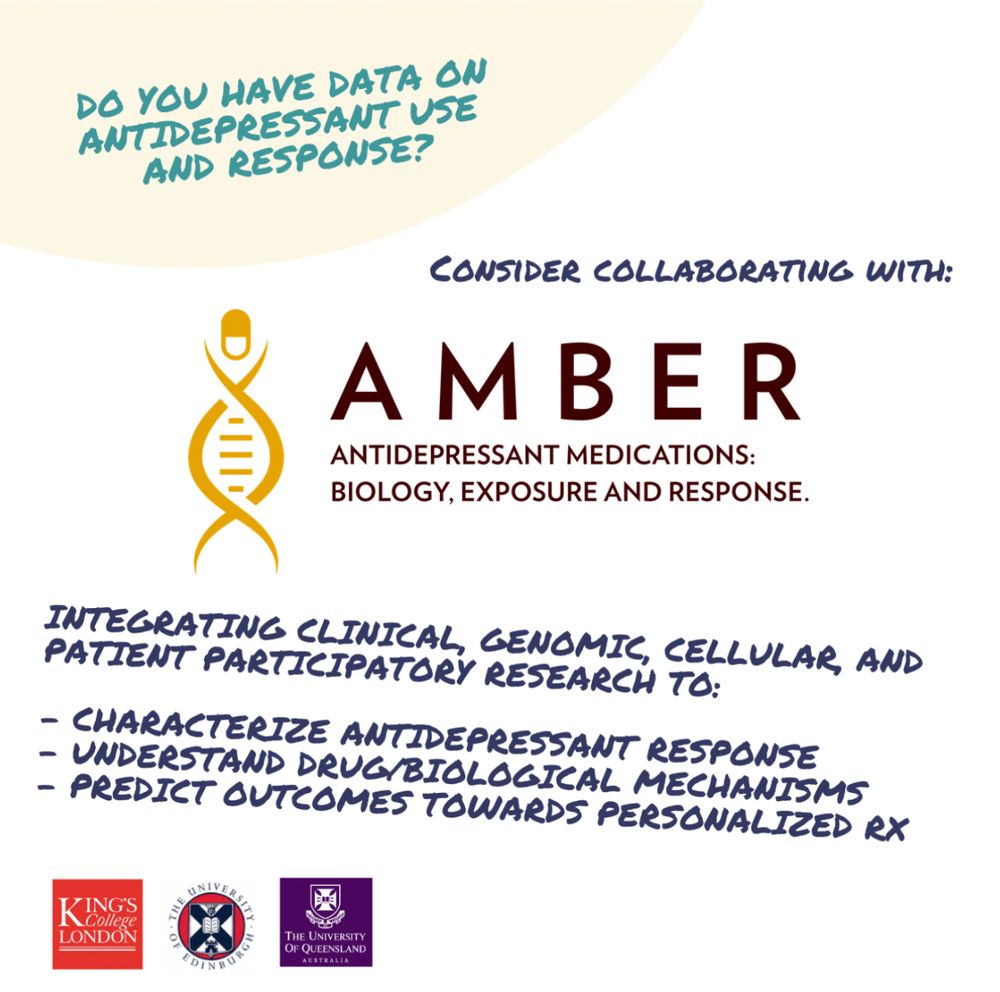
Check out this project and reach out to PI @cathrynlewis.bsky.social to learn more or collaborate!
www.kcl.ac.uk/research/amb...
Lo et al. studied patients who switched from first-line antidepressants to another antidepressant.
Switching can imply the drug was not effective for depression symptoms.
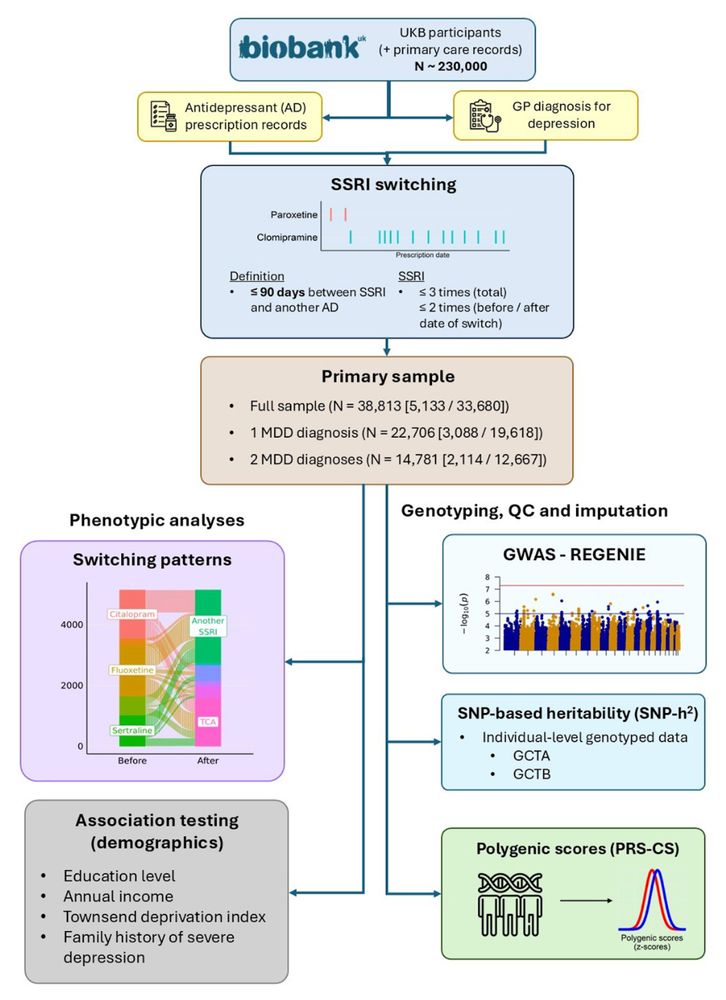
Lo et al. studied patients who switched from first-line antidepressants to another antidepressant.
Switching can imply the drug was not effective for depression symptoms.
New study led by Danyang Li used machine learning in @gladstudy.bsky.social to predict side effects & discontinuation across SSRIs, SNRIs, and tricyclic antidepressants in over 4,000 participants.
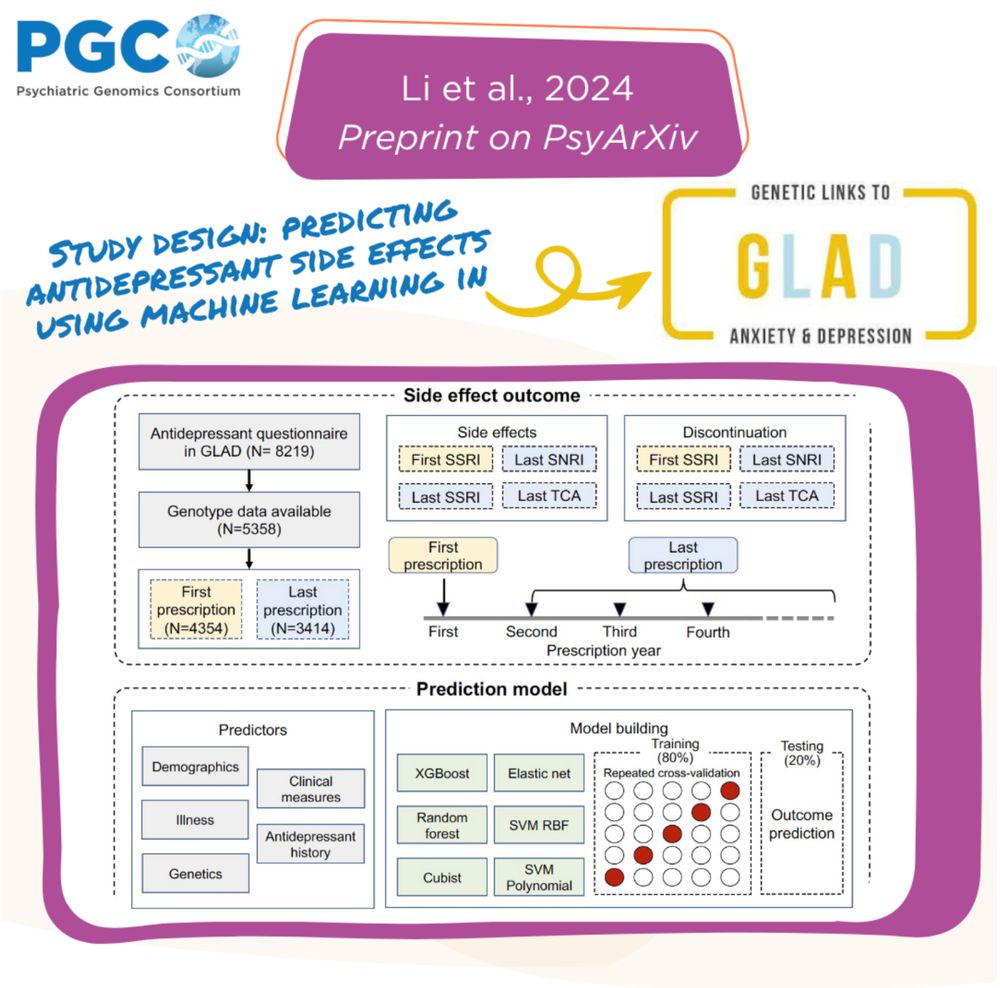
New study led by Danyang Li used machine learning in @gladstudy.bsky.social to predict side effects & discontinuation across SSRIs, SNRIs, and tricyclic antidepressants in over 4,000 participants.
Those who responded positively about antidepressants were more likely to be female, to have higher incomes, and shorter episodes of depression.
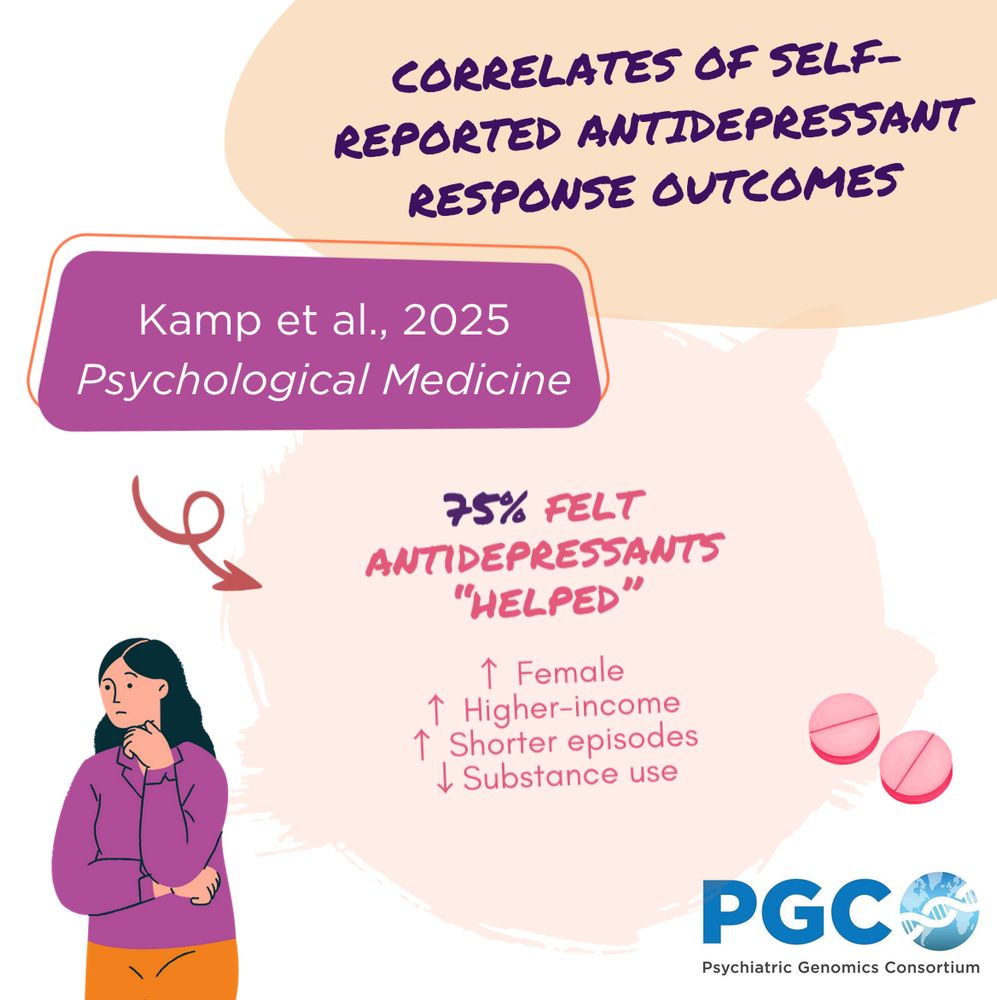
Those who responded positively about antidepressants were more likely to be female, to have higher incomes, and shorter episodes of depression.
Response to antidepressants had a genetic component, but the study was too small to identify which specific variants contributed to response or non-response.
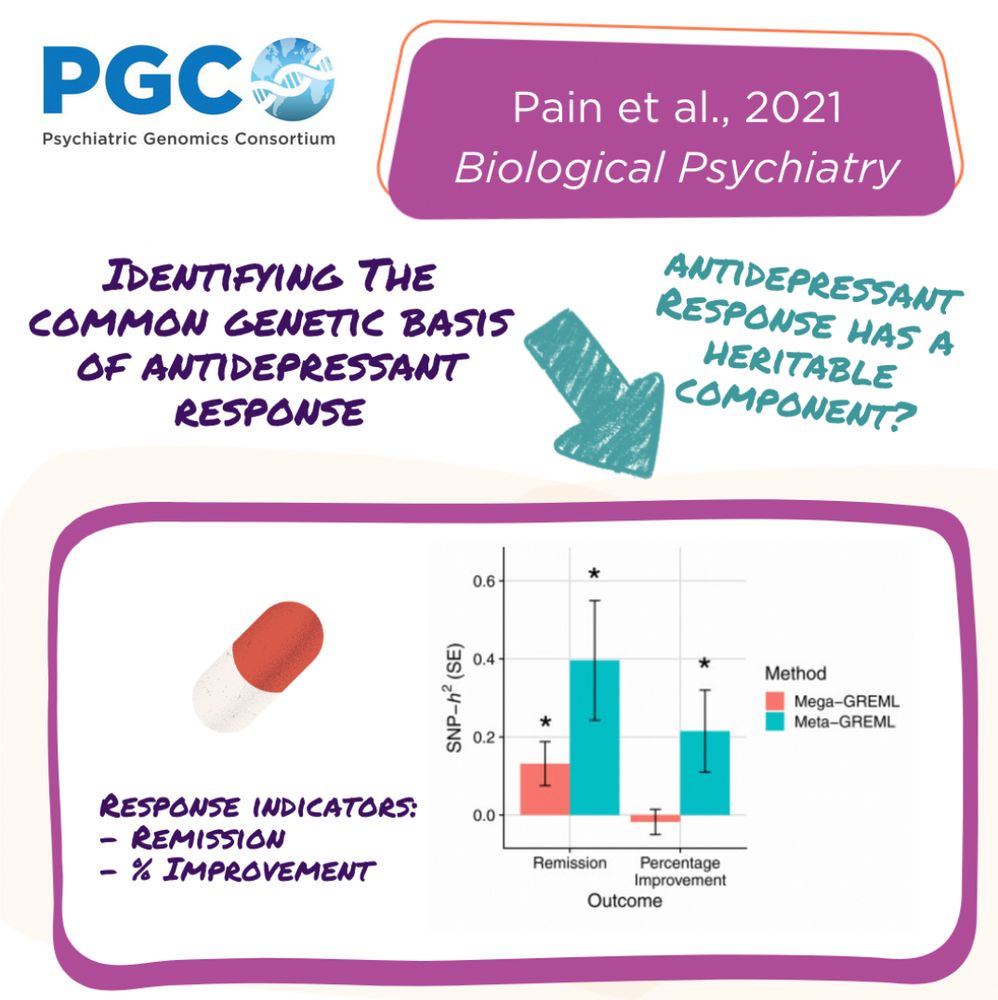
Response to antidepressants had a genetic component, but the study was too small to identify which specific variants contributed to response or non-response.
👉 doi.org/10.1016/j.ps...
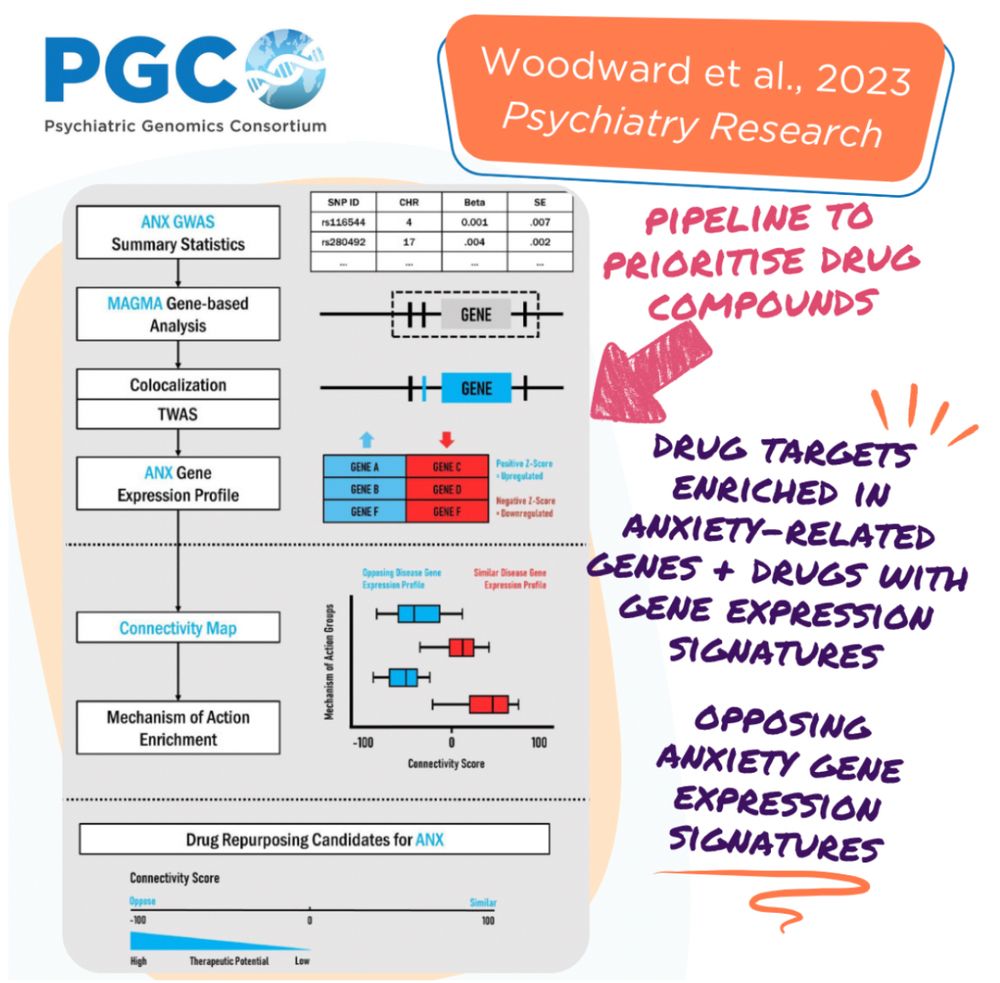
👉 doi.org/10.1016/j.ps...
Check out the drug repurposing approach in these two studies aiming to identify new anxiety & depression treatments to test and validate in further studies.
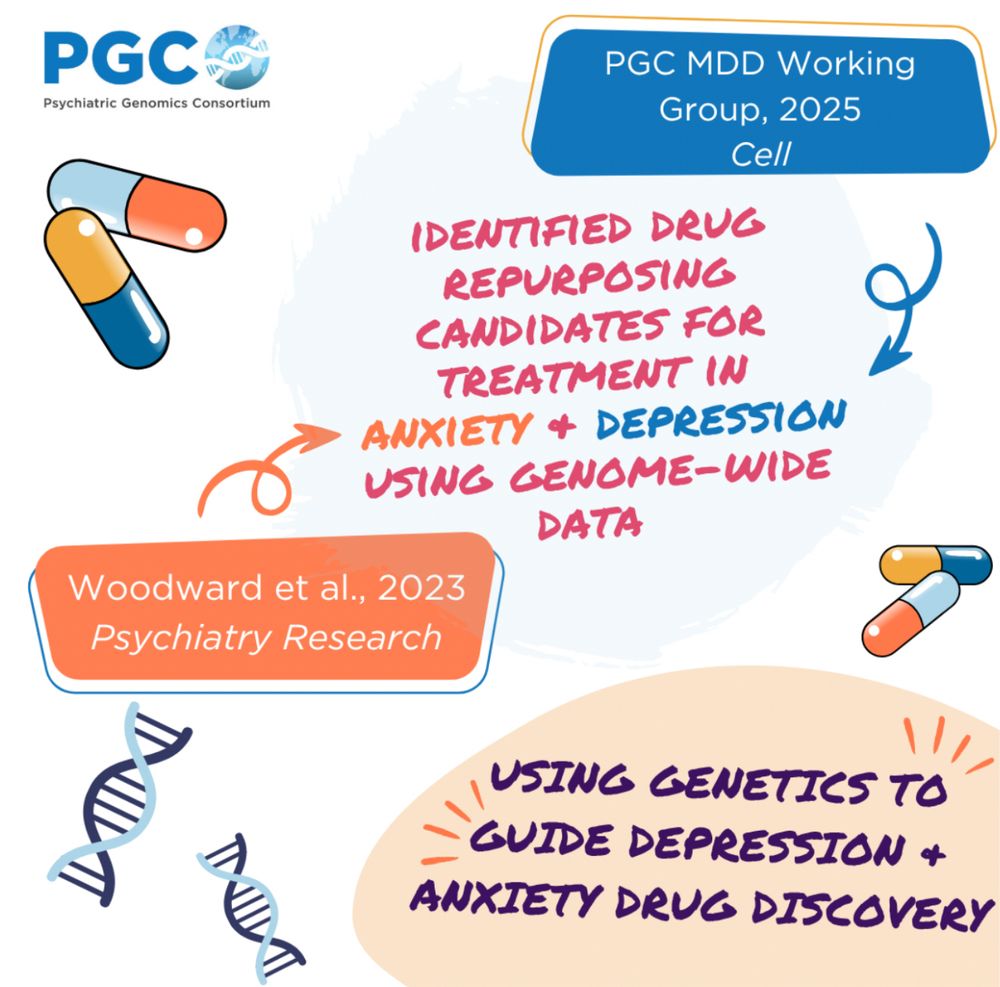
Check out the drug repurposing approach in these two studies aiming to identify new anxiety & depression treatments to test and validate in further studies.

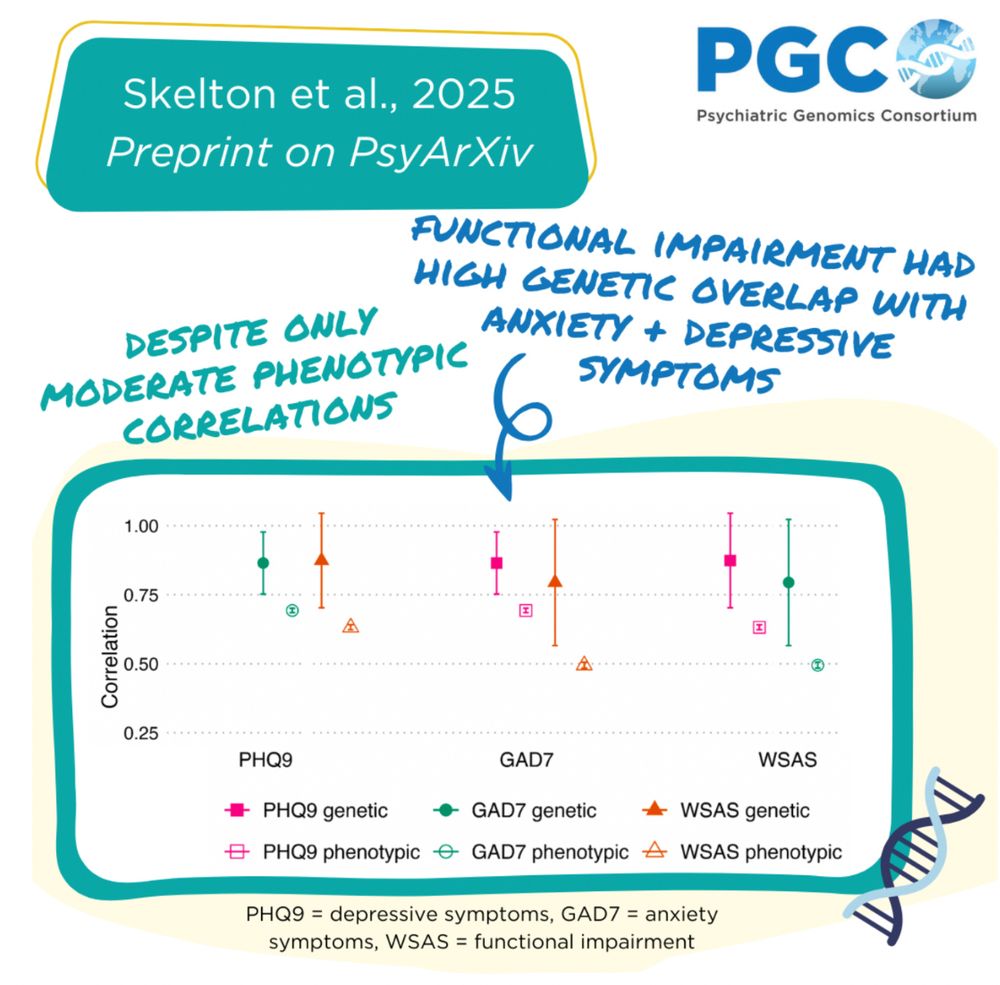
Despite its role in diagnosis and importance to patients, functional impairment is often overlooked in research & shows only moderate phenotypic correlations with depression & anxiety symptoms.

Despite its role in diagnosis and importance to patients, functional impairment is often overlooked in research & shows only moderate phenotypic correlations with depression & anxiety symptoms.
Using EHR data from almost 178k people, Coombes and colleagues studied how genetic factors contribute to comorbidity.

Using EHR data from almost 178k people, Coombes and colleagues studied how genetic factors contribute to comorbidity.
www.cambridge.org/core/journal...

www.cambridge.org/core/journal...
doi.org/10.1038/s413...

doi.org/10.1038/s413...
bsky.app/profile/pgcg...

bsky.app/profile/pgcg...
www.cambridge.org/core/journal...

www.cambridge.org/core/journal...
Tabrizi et al 2025 found both twin heritability (79% vs 41%/50%) & polygenic contributions were greater for comorbid anxiety-depression than for anxiety or depression only, suggesting stronger genetic influences when these conditions co-occur.

Tabrizi et al 2025 found both twin heritability (79% vs 41%/50%) & polygenic contributions were greater for comorbid anxiety-depression than for anxiety or depression only, suggesting stronger genetic influences when these conditions co-occur.


